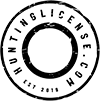The wilderness can be as unforgiving as it is beautiful, particularly when you’re out hunting. The thrill of the chase and the sense of connection with nature are incomparable, but these experiences also come with their share of risks. Injuries and medical emergencies can happen, and knowing first aid basics can make a crucial difference in such situations. This blog post aims to provide you with essential first aid information that every hunter should know before venturing into the great outdoors.
The Hunter’s First Aid Kit
Essentials
A basic first aid kit is a must-have for anyone, but hunters should be especially prepared. Your kit should include antiseptics like hydrogen peroxide or alcohol wipes to disinfect wounds, sterile gauze and bandages for dressing injuries, and tweezers and scissors for removing foreign objects or cutting cloth. A small assortment of over-the-counter pain relievers like ibuprofen can also be very useful for managing discomfort.
Add-ons for Hunters
Hunting-specific risks require specialized first aid items. Hemostatic agents, which help to control severe bleeding, are invaluable for gunshot wounds or serious lacerations. A snakebite kit can be a lifesaver in regions where venomous snakes are prevalent. Thermal blankets are useful for maintaining body temperature in harsh conditions and can be crucial in preventing hypothermia.
Handling Common Injuries
Cuts and Scrapes
Cuts and scrapes are common injuries while hunting. Always cleanse the wound immediately using an antiseptic to prevent infection. Once cleaned, cover the wound with a sterile bandage to keep it protected and help it heal more quickly.
Sprains and Strains
Sprains and strains often occur when traversing uneven terrain. The R.I.C.E. method, which stands for Rest, Ice, Compression, and Elevation, is highly effective for treating these kinds of injuries. Rest the affected area, apply ice to reduce swelling, use a bandage for compression, and elevate the limb to minimize blood flow to the injured area.
Burns
Burns can occur from campfires, cooking stoves, or even firearm misfires. Run cool water over the affected area for at least 10 minutes to cool down the burn. Avoid using ice as it can cause tissue damage. After cooling, cover the burn with a sterile cloth or gauze to protect it from infection.
Wildlife-Specific Concerns
Snakebites
Snakebites are a serious concern when hunting in certain regions. Keep the bitten limb immobilized at or below heart level to slow the spread of venom. Time is of the essence, so seek medical attention as quickly as possible.
Insect Stings
Insect stings can cause allergic reactions or infections. Use tweezers to remove the stinger if it’s still lodged in the skin. Cleanse the affected area with antiseptic and apply a cold compress to reduce swelling.
Animal Attacks
Animal attacks, although rare, are a possibility. If attacked, your first priority is to defend yourself effectively. Once the animal has been deterred or scared away, assess your injuries. Deep wounds may require immediate treatment with hemostatic agents to control bleeding, followed by prompt medical attention.
Dealing with Environmental Challenges
Heat Exhaustion
Heat exhaustion is a risk when hunting in hot climates. If symptoms like excessive sweating, dizziness, or nausea occur, move to a cooler area immediately. Hydrate with water or sports drinks and use wet cloths to lower your body temperature.
Hypothermia
Hypothermia is a danger in cold environments. If you or someone else shows symptoms like shivering, confusion, or slurred speech, act quickly. Wrap the individual in thermal blankets and provide warm, non-alcoholic fluids to help raise body temperature.
When to Seek Professional Help
Certain situations demand immediate professional medical intervention. If you’re dealing with severe bleeding that won’t stop despite applying pressure, or if someone shows signs of shock, such as pale skin and rapid breathing, emergency services are necessary. Similarly, multiple fractures or other serious injuries should prompt immediate evacuation and professional medical treatment.
Conclusion
Being well-prepared with the right first aid knowledge and tools can dramatically improve your hunting experience. It’s not just about patching up injuries; it’s about having the confidence and resources to tackle any challenges that may arise. A well-equipped first aid kit and the skills to use it effectively enable you to enjoy your adventure safely and responsibly.


Leave a Reply